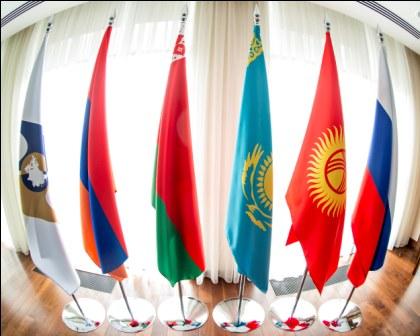


ArmInfo. The aggregate GDP of the EAEU countries in the first half of 2017 increased by 1.8%. This was stated by Prime Minister of Russia Dmitry Medvedev on October 25 in Yerevan within the framework of the Eurasian intergovernmental council.
"The discussions are productive and even interesting in places, especially taking into account the public part, and a really comfortable environment has been created for the work," noted the head of the RF Cabinet of Ministers, following the results of the discussions of the inter-governmental council in a narrow composition. According to the Russian prime minister, within the Union a space of free movement of goods, services, capital and labor is being formed. This, as Medvedev noted, is not a simple matter and requires a long and painstaking work. "This is the result of our joint dialogue and compromises, the opportunities and the desire to listen to each other and make decisions," the prime minister said.
According to him, in general, the common market is gradually revealing its capabilities. About this, as Medvedev noted, even despite the local problems, all those present spoke. As he noted, the trade turnover within the Union has increased by almost 28%. The volume of trade with third countries increased by 26%, which is important - growth was noted in all countries without exception. If you take a cut by industry, then most significantly added industry, agriculture, freight and passenger transportation. "People see that the consumer market is replenished with an assortment of products, which is released in the EAEU, which in my opinion is very important," he said.
At the same time, as Medvedev stressed, we need to move on, to continue improving the legal field of the Union. The main tasks on this stretch, as Medvedev pointed out, are in several points. First, to effectively and consistently remove obstacles to seizure in trade. "We held today a discussion on this topic, which was productive, serious, but by that we are essentially developing competitive conditions for business," he said. According to him, only this year 14 such positions were liquidated, today the task is set to remove more than 20 of them. We are talking about industry, agriculture, energy, technical regulation. Secondly, the prime minister called for the development of regulation itself.
Prime Minister Medvedev recalled that from January 1, the Customs Code comes into force. "This is a more advanced document than it is now, I believe that this is our great success that we were able to agree on, this is a very difficult topic, especially if we look at the integration experience of other integration associations, including the EU and some others. This document contains exhaustive rules for the movement of goods across the customs border and removes normative contradictions, I hope we all will follow this," he said.
Medvedev said that within the framework of the intergovernmental council in a narrow format, the participants discussed the development of the markets for gas, oil, and petroleum products, there are complex issues in the correlation of domestic and all-union tariffs, pricing, which require further work. "The only thing I would like to note is that we are not an alliance of oil and gas, some of the countries have neither oil nor gas, so it is wrong to even formulate it, moreover, we generally get a big share not from hydrocarbons, even Russia, whose positions in this market are well known, but even now we are getting a larger share of revenues not from hydrocarbon exports," he said.
The digital agenda, which dealt with the participants of the intergovernmental council, came to the fore, he said. "New energy sources are being discussed. Let us not lower the bar of those tasks that are facing our integration association. Today we will make a decision to organize a common electricity market. Our countries will have an integrated system that will work in B2B format and link companies directly," said Medvedev.
At the same time, as the Russian prime minister noted, it is important to saturate the agenda of the Union with new promising directions that would ensure future growth. Here, in the first place, Medvedev believes, a block of topics is coming together that are united by the concept of a digital economy: the development of electronic commerce, new technologies in production, data protection, and much more. "With the right approach, all this can push our economies in general, ensure the growth of trade, cut down our costs and expenses and, of course, increase labor productivity. "I think that we must now give priority to this, not just the hydrocarbon sphere," the head of the Cabinet RF.